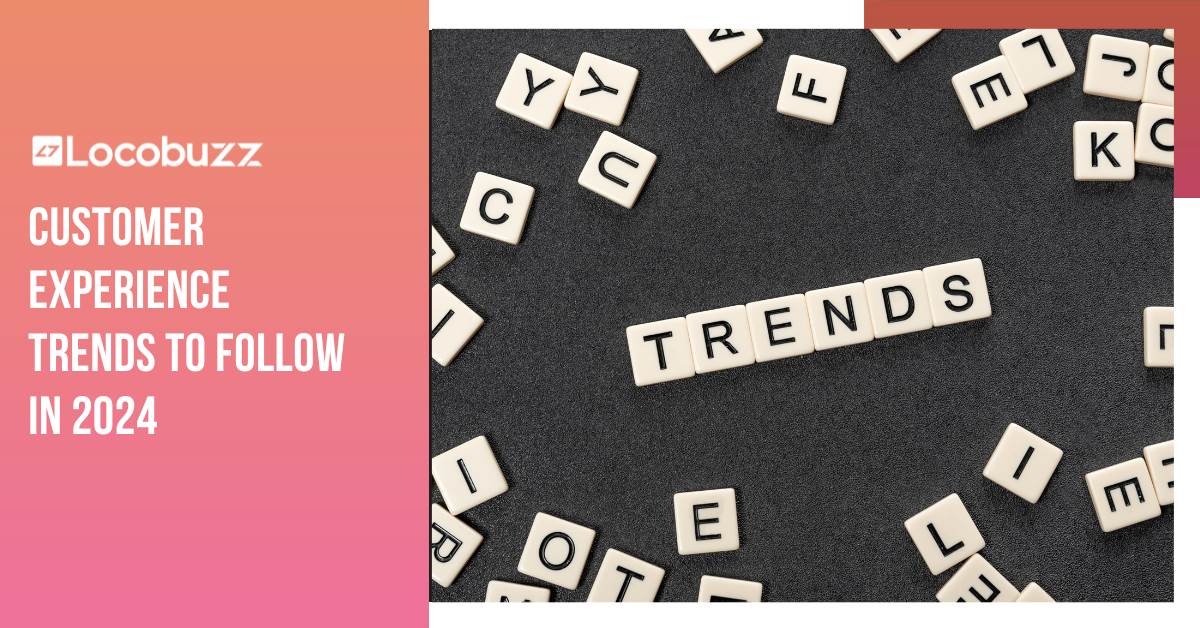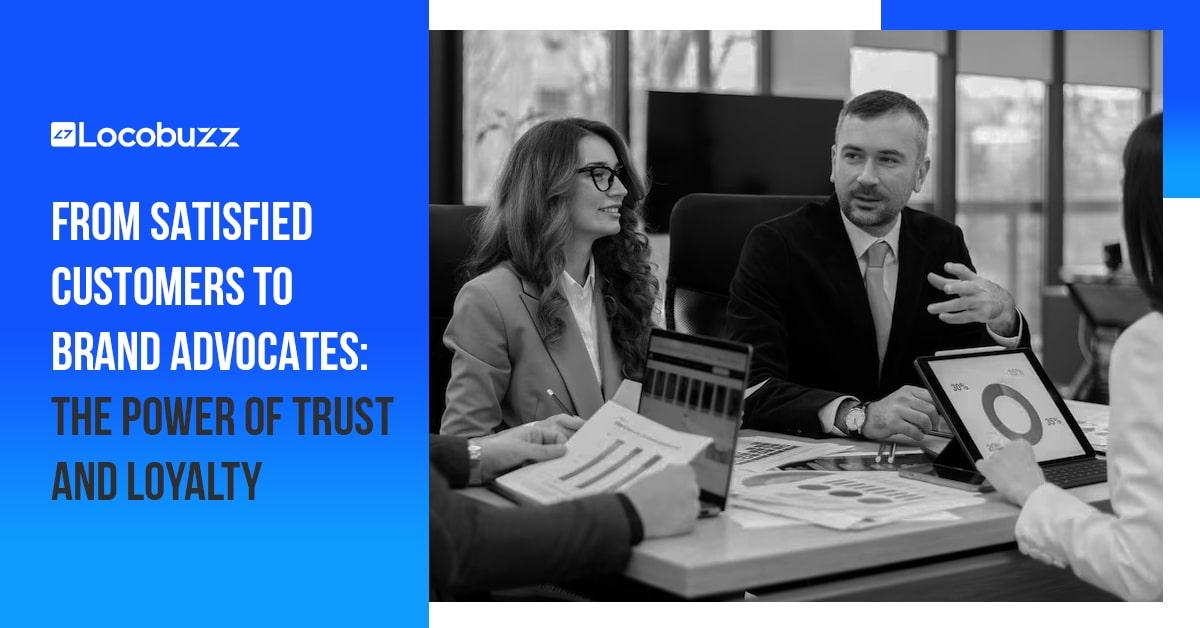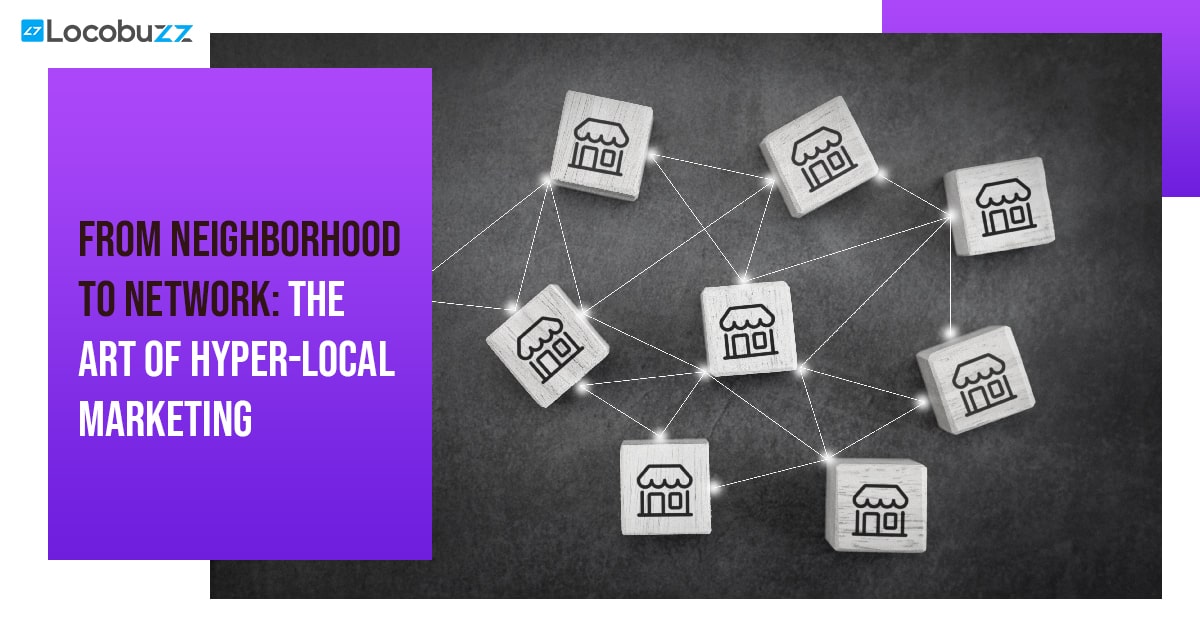75 Online Reputation Management Statistics
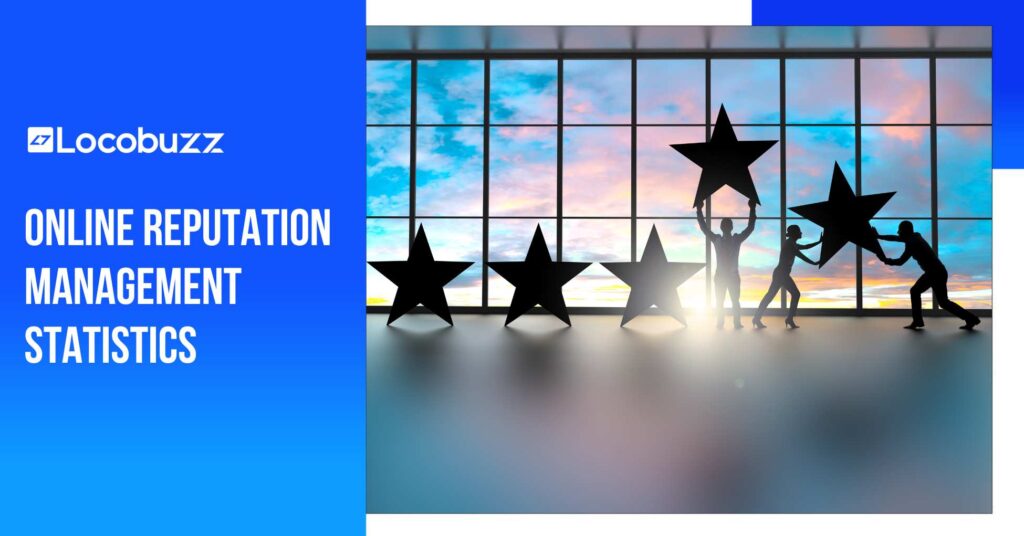
Online reputation management is a multifaceted process that plays a crucial role in shaping how your brand is perceived in the digital world.
Online reputation management is a multifaceted approach that encompasses social media monitoring, review management, content creation, SEO, crisis management, customer engagement, and influencer partnerships.
Whether you’re a startup or an established business, managing your online reputation is the first step towards building trust, credibility, and brand loyalty. Below are the 100 starts to guide you on this essential journey. Dont miss to check the lesser known stats on ORM at the end of this blog. Happy Reading!
Online Reputation through Review Management
- The 76 Percenters make key groups such as employees and investors aware of the company’s reputation.
- 93% of people read online reviews before making a purchase.
- 98% of people report reading online reviews about local businesses.
- Over 90% of people report that positive reviews make them more likely to frequent a business, and 86% feel that online business reviews are as trustworthy as personal recommendations from friends or family.
- Businesses risk losing 22% of customers when potential customers find one negative article on the first page of their search results, according to a study.
- It’s a myth that people only leave reviews when they’re very happy or very upset; only 4% of consumers have never left a review.
- Almost 75% of all online reviews are left on Google. While you may not be able to control what people say about you, you can have a positive impact by maintaining and monitoring your Google My Business (GMB) profile.
- 90% of consumers read just 10 reviews or fewer before they feel that they can trust a business (vs. 87 percent in 2015).
- 32% of consumers form an opinion by reading one to three reviews.
- 68% of consumers form an opinion by reading one to six reviews.
- 87% of people want to see three- to five-star reviews about a business before they will consider using them.
- Of the consumers surveyed, only 14% would consider using a business with a one- or two-star rating.
- Google is the most popular online review platform. 59 percent of consumers use it to read reviews.
- In 2022, Trader Joe’s took the top spot as the most reputable corporation in the United States, with an index score of 82.4 points based on consumer perception of the brand.
- Only 48% of online users would consider using a business with an average rating under 4 stars, and only 19% of online users would consider a business with an average rating under 3 stars.
- 85% of consumers trust a corporation with a positive reputation.
- 92% of consumers are less likely to frequent a business after reading negative reviews.
- Businesses risk losing 22% of business when potential customers find one negative article on the first page.
- 46% of consumers turn to Facebook to learn more about a business, followed by YouTube (35%), Instagram (32%), and TikTok (20%).
- Businesses that have already experienced a crisis say the most important lessons they’ve learned or would do differently are doing more to identify crisis scenarios (34%), executing a more timely and robust communications plan (29%), and communicating more effectively with employees (29%).
- Only 1 or 2 star reviews failed to convert 86% of prospective consumers.
- Only 16% of shoppers polled stated they don’t trust internet reviews.
- Before considering utilising a business, 87% of respondents want to read three to five-star evaluations.
- Positive customer evaluations make 68% of individuals more inclined to utilise a local business.
- A reputable blogger influences 44% of social media aware women’s purchasing decisions.
- 41% of individuals who buy a product say they merely came upon it and hadn’t considered buying it or something similar.
- Almost 75% of all online reviews are left on Google. While you may not be able to control what people say about you, you can have a positive impact by maintaining and monitoring your Google My Business (GMB) profile.
Online Reputation through Content Creation
- In 2021, more than half of marketers included graphics in more than 91% of their content.
- 79% of individuals feel UGC has a significant effect on their shopping decisions.
- When it comes to purchase decisions, consumers regard UGC to be 9.8x more influential than influencer content.
- More than half of marketers believe that visual content is critical to their marketing approach according to Vanngage
- Social media campaigns that include user-generated content receive 50% higher engagement.
- Consumers want to look at a product in action and are highly influenced by the visual dimension: up to 40 percent of them change their minds because of something they see, learn, or do at this point—say, packaging, placement, or interactions with salespeople.
- Before making a purchase, 55% of consumers watch a video.
- When making online purchases, 96% of buyers found videos useful.
- 71% of consumers are more inclined to buy an item after hearing about it on social media.
- 56% of customers believe social media photos and videos affect their online purchase decisions today more than they did before the outbreak.
- 78% of individuals responded that company social media posts affect their purchasing decisions.
- When customers are exposed to a combination of professional marketing content and user-generated content, brand engagement increases by 28%.
- 98% of employees use at least one social networking site for personal reasons, with 50% already commenting about their employer according to weber sandwick.
- 90% of customers agree that authenticity influences their decision to like and support certain companies
- Conversion rates for content marketing are six times greater than for other strategies.
- An astounding 92% of marketers feel that most or all of the content they generate connects with customers as real.
- However, the majority of customers disagree, with 51% claiming that less than half of businesses generate real content according to social media today.
- According to the Content Marketing Institute, 86% of B2B marketers believe that publishing great content has enhanced brand recognition, and 70% believe that it has resulted in more leads.
- Posts that include images produce 650% higher engagement than text-only posts.
- 76% of customers say they pay attention to messages from brands they trust, compared to 48 who don’t fully trust a brand.
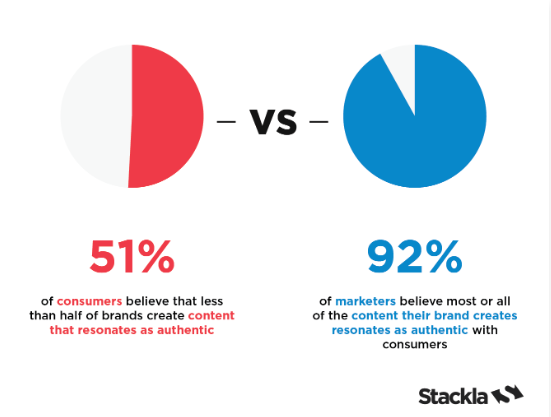
image source – Nosto
Online Reputation Through Influencers
- According to an online influencer poll, 63% of 18-to-34-year-olds believe what an influencer says about a business more than what the firm says about itself in advertising.
- Businesses are making $5.2 ROI for every $1 spent on influencer marketing
- 92% of customers prefer suggestions from others, even strangers, to branded material.
- 88% of surveyed consumers have been inspired to purchase based on what they saw from an influencer
- Influencers with 10k-100k followers provide the finest combination of engagement and broad reach, with like and comment rates that outperform those with more followers.
- 71% of CPG marketers typically work with fewer than 25 influencer per program.
- 57% of marketers indicate that influencer material outperforms professionally generated assets, making influencer marketing programmes a strategic content investment in addition to the online reputation and brand building.
- 73% using influencer content to improve the performance of their paid social ads and 61% using it as a content engine for organic social media marketing
- 52% of companies embroiled in a social media crisis wind up having to make a significant change or response
- A survey found out that 73% of board members surveyed identified reputation risk as the area where they felt most vulnerable, but only 39%had a plan to access a reputation crisis.
- American business magnate and philanthropist Warren Buffett, had said, “It can take 20 years to build a reputation and only five minutes to ruin it.” Currently, it may take even less time.
Google My Business In Online Reputation
- 93% of consumers use Google Maps when searching for a business.
- 94% of calls from GMB come on working days, meaning that Monday through Friday are prime times for potential customers to call you directly.
- An average local business receives 1,260 views a month on Google My Business.
- In the last two years, mobile inquiries for “where to buy” + “near me” have increased by more than 200% (where to buy flowers near me, where to buy stamps near me, where to buy pumpkins near me).
- 87% of consumers compare shop for every purchase they make, and they shop across various channels.
- 53% of online shoppers say that images inspire them to make purchases.
- Mobile searches for “image search” have grown by over 60% in the past two years
SEO in Forming Brands' Online Reputation
The Lesser Know Stats on Online Reputation
- A study by Lithium Technologies found that 53% of customers who ask a brand a question on Twitter expect a response within an hour.
- Only 21% believe that the companies they use have the best interests of society in mind based on personal experience.
- Despite what appears to be common, a google survey discovered that 96% of customers had experienced websites that were not created with mobile in mind.
- It was also shown that when this occurs, it may be detrimental to company – 48% reported feeling dissatisfied and annoyed.
- 67% of mobile users believe they are more inclined to buy a product or service from a site that is mobile-friendly.
- According to 56%, too many firms use societal concerns as a marketing tool.
Managing Online Reputation with Locobuzz
Locobuzz’s platform enables businesses to monitor their online presence across various channels, including social media, review sites, and forums. By keeping a pulse on what customers are saying about your brand, you can quickly respond to feedback, address concerns, and foster positive relationships.
The platform goes beyond mere monitoring. Its cutting-edge content creation tools empower businesses to create engaging and relevant content that resonates with their audience. By regularly sharing high-quality content, brands can build a positive online reputation and establish themselves as industry leaders.
The tools’ advanced analytics provide valuable insights into your brand’s online performance. By analyzing customer feedback and online interactions, businesses can identify areas for improvement and implement data-driven strategies to enhance their online reputation.
As a leader in CXM, Locobuzz offers a holistic approach to online reputation management. From real-time monitoring to strategic content creation and insightful analytics, Locobuzz provides businesses with the tools they need to build and maintain a strong online reputation, ultimately driving trust, credibility, and business growth.
Final Thoughts
In conclusion, online reputation management is needed in today’s digital age. The stats show that it influences consumer trust, drives sales, and affects search rankings.
A positive online reputation, backed by responsive customer service, authentic content, and strategic use of influencers, is key to business success.
It’s not just a tactic, but a long-term strategy for building a strong brand.


